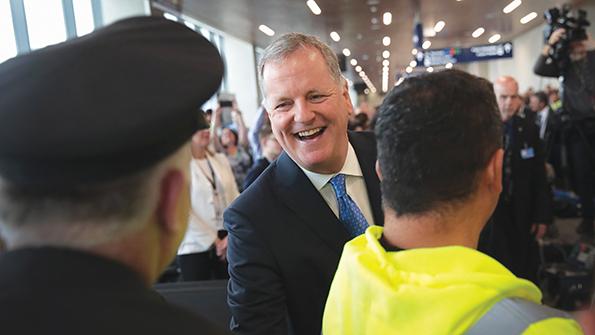2024 ATW Lifetime Achievement Recipient: Doug Parker

Doug Parker is the 2024 ATW Lifetime Achievement recipient.
Credit: Scott Olson/Getty Images
Doug Parker’s long and influential career in airline management began in 1986 when he joined American Airlines as a financial analyst at a time when Bob Crandall was CEO. Parker then moved to Northwest Airlines before joining Phoenix-based America West as CFO, and eventually CEO. Parker oversaw the...
2024 ATW Lifetime Achievement Recipient: Doug Parker is part of our Air Transport World subscription.
Subscribe now to read this content, plus receive full coverage of what's next in air transport from the experts trusted by the global air transport community. Every article focuses on what airline management professionals need to run their airline, including crucial analysis and insights in financing, airframes and engines, environmental and regulatory pressures and much more.
Already a subscriber to ATW or an AWIN customer? Log in with your existing email and password.




